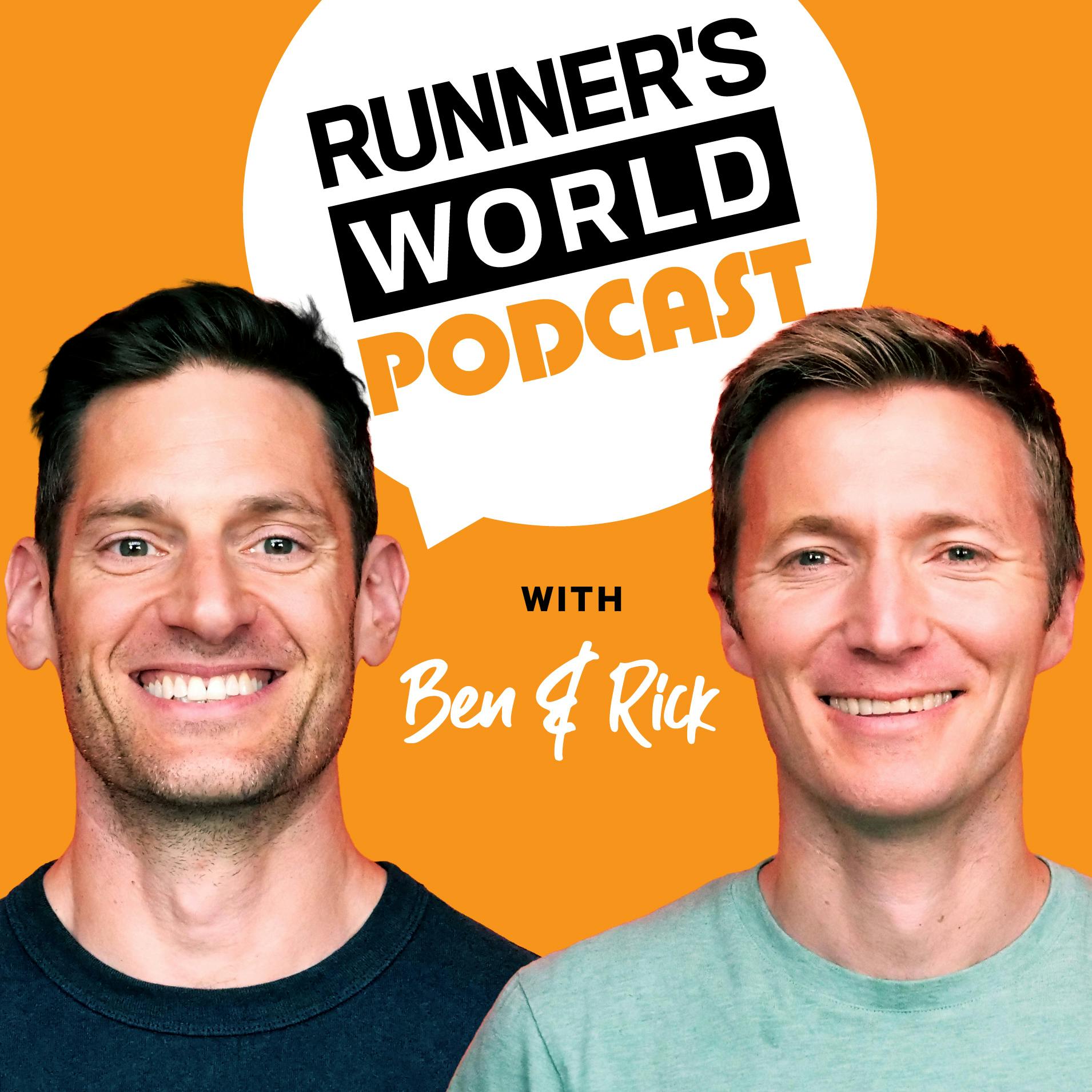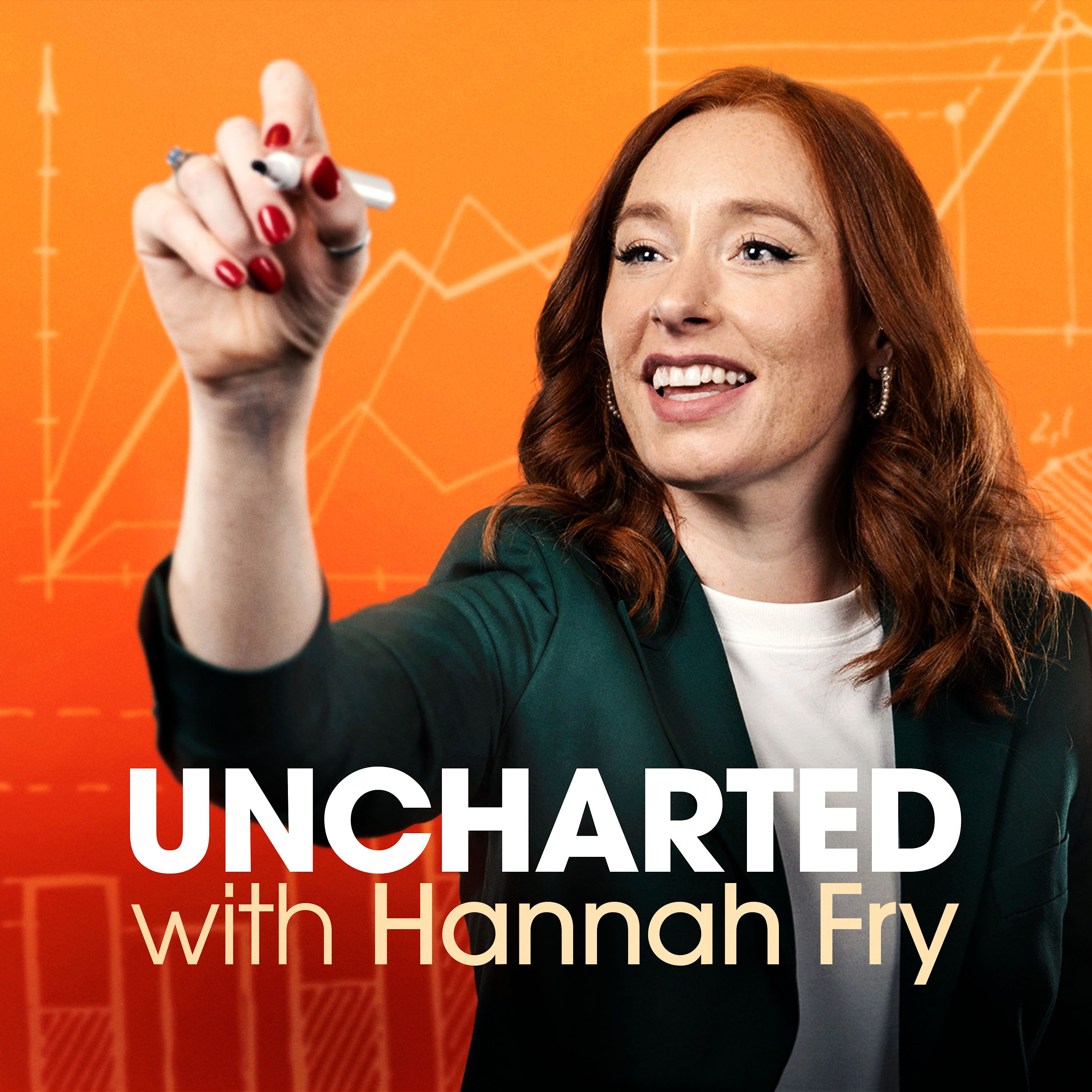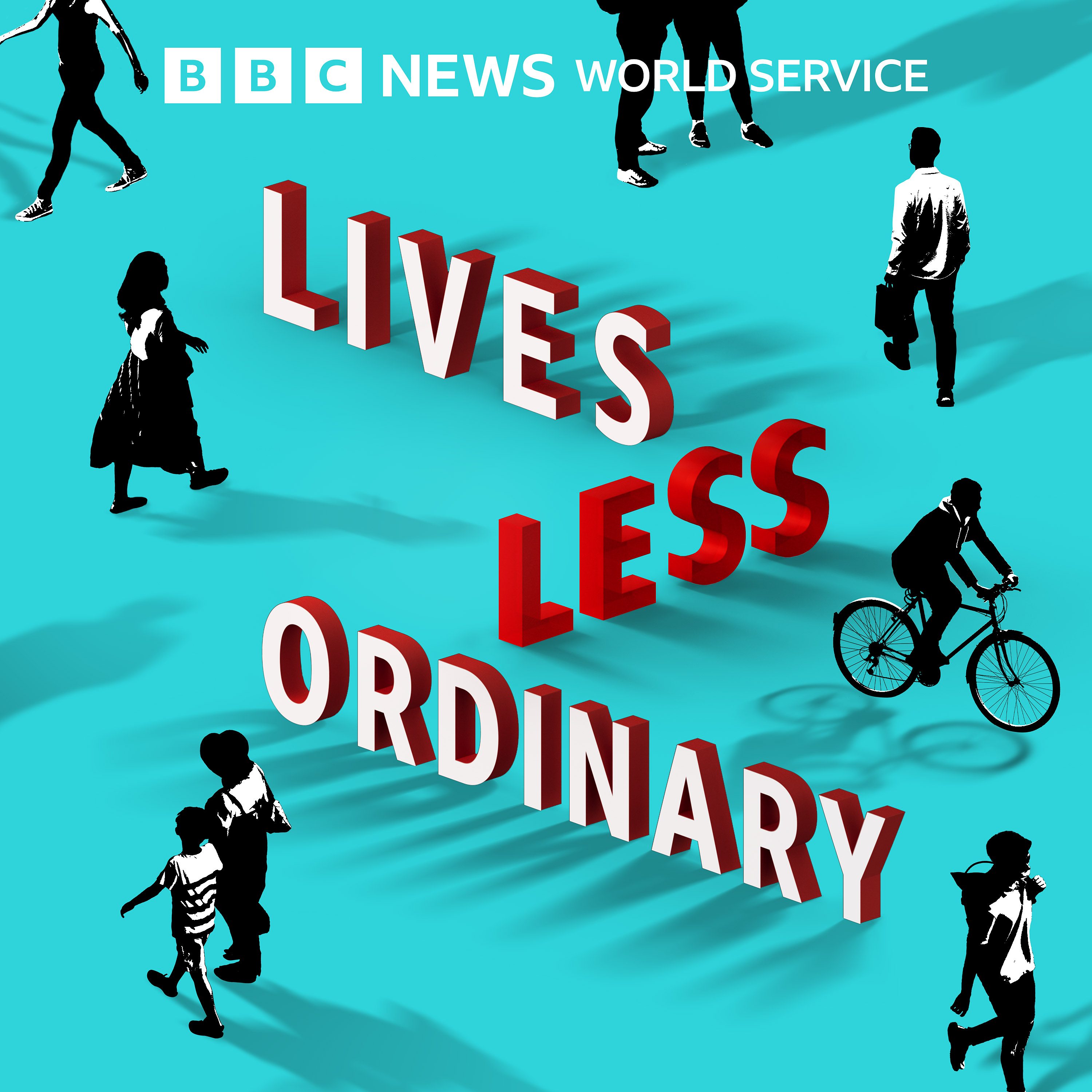
Brian's Run Pod
Welcome to Brian's Run Pod, the podcast where we lace up our running shoes and explore the exhilarating world of running. Whether you're a seasoned marathoner, a casual jogger, or just thinking about taking your first stride, this podcast is your ultimate companion on your running journey.
Join us as we dive deep into the sport of running, covering everything from training tips and race strategies to personal stories and inspiring interviews with runners from all walks of life. Whether you're looking to improve your race times, stay motivated, or simply enjoy the therapeutic rhythm of running, Brian's Run Pod has something for every runner.
Brian's Run Pod
The Joy of Training: A Conversation with Andrew Wren Pt 1
Ever wondered how a professional running coach motivates a diverse range of athletes, from the anti-runner to the beginner? Andrew Wren joins our conversation today to offer a unique perspective. Adept at turning data into insights in his past life, he now helps people go from couch to 5K, and beyond. Andrew's candid discussion around the importance of formal qualifications and trust-building with clients is a must-listen for anyone considering a coaching career. But it's his insight into the art of relationship-building that truly sets him apart.
We explore the complexity of coaching beginners who might not be apt for certain events but are fuelled by an unshakeable passion. Andrew shares an uplifting story of a client who went from barely able to run 5k to crossing the finish line of a marathon in just 3 hours and 23 minutes! While we celebrate this incredible feat, Andrew reminds us that the joy of training often outweighs the thrill of the event. If you're seeking motivation, inspiration or even contemplating lacing up those running shoes for the first time, this episode is packed with insights that could change your perspective on running and personal growth. Get ready for an empowering journey with Andrew Wren!
https://www.runwolves.com
Brian's Run Pod has become interactive with the audience. If you look at the top of the Episode description tap on "Send us a Text Message". You can tell me what you think of the episode or alternatively what you would like covered. If your lucky I might even read them out on the podcast.
Instagram
So you're thinking about running but not sure how to take the first step. My name's Brian Patterson and I'm here to help, and welcome to Brian's Rompod. Welcome back to Brian's Rompod, and this week we've got a very special guest, andrew Wren, who is a professional running coach in the local talent area. I thought I would split this interview into three parts, so three chunks and the first. in this first part, i started off by asking him how he got interrunning. I really, really hope you enjoy this interview and in all the subsequent interviews, as I did So, without further ado, i'll hand it over to Andrew.
Speaker 1:Welcome back to Brian's Rompod, and today we have a special guest, andrew Wren, who is a local running coach, and I've been wanting to speak to someone like Andrew for a while and feel really privileged that he's agreed to come on the podcast today. Andrew is a very enthusiastic coach and has a proven track record improving and optimizing athletes from the newest to elites. He says, and I quote I use personal and data-driven approach to performance and improvement at every level. This can be used alongside and to inform traditional coaching methods and advice about diet and lifestyle to help you become faster and fit. I'd like to go to the beginning and I just wanted to know have you always been? even at school? is running always been quite something you've been interested in?
Speaker 2:My parents are runners, oh right, okay, and they are still runners. In fact, my dad is 78 and he's still running up and down mountains. So, yeah, they're runners. My brother ran for GB, yeah, and yeah. So I've been running since. I've been racing since I was eight. Wow, okay, that's 31 years. I calculated recently that at the age of 39, i've been racing against 18 year olds for 25 years, right, which I'm delighted to turn 40 next year So I can race against 40 year olds. I'm so excited. Let me tell you Yeah, i would have said I say I was a kind of moderate runner at school. I've never been good at cross-crunchy and I occasionally get caroled into doing it now And I still find it slightly bad. But I'm good at running down hills at great speed. I'm good at ultra marathons. I'm good at the things that we didn't really do at school. Right, it was actually more when I came back to running in my sort of mid to late 20s when I became actually better at it, to be honest, yeah, yeah.
Speaker 1:Yeah, yeah, okay. And so what? I mean? are you a full-time athlete or is this something that's kind of like a household?
Speaker 2:I would describe myself as an athlete, but I'm a full-time coach. Full-time coach Yeah, coach is my full-time job. I do have part-time jobs which are quite not part-time jobs. I do have other kinds of Ions in the fire. Yeah, sort of, but they're not financially viable in any kind of way. Oh right, okay, i produce music. Okay, i'm a radio DJ occasionally, but yeah, i don't have any. Those are not profitable enterprises, yeah.
Speaker 1:So, once you decided that you were going to be a full-time coach, what's the process in terms of? do you have to get qualifications, and how does that work?
Speaker 2:So when I decided I was working I was working a data warehousing job at the time Okay, yeah, i've had all the jobs. By the way, that's something that people find out about me. I have different data. I have as well. Yeah, the. Yeah, i was working data warehousing job and I started a couch to 5k club at the office I was at. Yeah, yeah, i thought I realized that actually I should get some formal training on this. So they're, i started through the.
Speaker 2:the England athletics Qualifications okay, that's not with leader in Leader in running fitness, coach in running fitness. Yeah, the next one, which is an endurance specific Mm-hmm. So, yeah, so I mean, there's the amount of qualifications that you can get. Is is, quite frankly, estonishing really, right, right, it's, it's a slightly different pathway to personal training. Yes, yes, yeah, which is, yeah, it's a much, it's, it's very different. Um, yeah, um, yeah, i plan to, over the next few months, get the athletics, some more of the athletics based ones as well. Right, as I enjoy working on the track. So, yeah, i want to do the, the throws and Oh right, okay, Okay, so more field event type Yeah, more field, i'll do some more sprinting as well, Yeah.
Speaker 1:Yeah, yeah, and this is the having those qualifications. Obviously it gives you kind of the education and also probably, uh, you know, they probably go with the health and safety and the insurance side and that kind of thing. But, um, do you feel that's Kind of the benefit to clients to say, you know, all right, i've got you know I'm qualified to do this? um, you know, does it, do you feel that They really care or?
Speaker 2:I'm not sure. Um, i, i, yeah, i think it's an extremely good question actually Think I think people do care, because I think I have had people ask me about industry qualifications and things like that. Um, i think people do care. Uh, fundamentally, i think Any form of coaching, whether it be, yeah, life, whether it be Business, any form of coaching, um, it's the, the theory is important And the theory behind, like the physiological theory and all that kind of that kind of aspect, is important, yeah, but I would say that the ability to build a relationship is Fundamentally more important from my perspective, from from from from the way that I would approach coaching.
Speaker 2:I have, i've trained with people you may have seen them in in local parks like the. You get those, um, british military fitness guys, um, and that's a whole different thing, right, it's? it's it's much more geared towards being told what to do and just, you know, um, whereas I, i would Philosophically want to build a positive relationship with my athlete, um, and work from there. I actually find it very hard to coach people with whom I don't build any kind of rapport. Yeah, like I, i occasionally meet people and I won't be able to make them laugh Like in the first hour of meeting them, like I won't, i won't like get anything back from them, and some people are just like that, right, some people, some people just like that. That's fine, um, because coaching is a two-way.
Speaker 2:Oh yeah, Yes, Yeah absolutely is Yeah, has to work both ways.
Speaker 1:Yeah, yeah, exactly. So, um, how do you I mean just the sort of more training specific, but how do you balance that volume and intensity of training to prevent over training and and and injuries? Is that?
Speaker 2:is. That is the, the cornerstone of endurance training. I mean, it's the. It's the most fundamental, uh, the most fundamental Level of it. Essentially there that everyone falls somewhere on a um permissiveness to, what's the other word I'm looking for And everyone falls on some kind of scale where some people will need to be told to run more and some people will need to be told to rest more. Very few people have it absolutely perfect I certainly don't. And working out the best way to persuade people of those two factors, or the best way, like, if people really can't run anymore, then you know. Or people can't do more exercise, that's much less of a problem. If an athlete comes to me and tells me that they couldn't do the session that I set for them for any reason, that's for the most part, it's fine, like, if it becomes a regular issue, then then yeah, i might have to, i might have to jim me them along a little bit off workout, what's wrong? But I'd be far more annoyed about people doing more than they are supposed to or a higher intensity.
Speaker 2:Fundamentally, there's there's data that you can use. So you on training peaks. It shows quite advanced data in terms of in terms of what the someone's fatigue. But realistically, the best way to gauge that is just by keeping in touch with athletes and asking how they feel. Training peaks also has a has a little thing where I'll ask you, a bit like the Garmin does, ask you how the, how the effort felt and how you felt And those and so, from my, from a red flag perspective, if I, if I look at someone's workout and I see that it was just a one hour endurance run or a 45 minute active recovery and they felt terrible during it, then you know, and so the balancing is always going to be different from person to person.
Speaker 2:But resting, you know, resting is crucial for everybody. The most difficult thing, actually, is getting people to rest after marathons. One of one of the most common things I hear about a week after someone's finished a marathon is also when, when's the training going to start again? Now, the pros, the pros take up to a month off. Right, i've heard stories of stories of professional marathon runners basically cross training, doing, you know, mountain biking, something like that Or something like that. Yeah, yeah, you can't get me to do cardio in a gym. It's physically impossible. I'd be, hey, well done to anyone who can do it, but I can't achieve it. I can't. Even my record of the treadmill is 400 meters. Yeah, so so you will get people.
Speaker 2:But the main, the main difficulty behind balancing, balancing fatigue and balancing workload is that fatigue is not linear. So two days after a marathon you might feel like you can run another one, but the problem with that is that the fatigue might not kick, might not kick in until the week after or the week after that. There's, there's, there's people who specialise, from a psychological perspective more than a physiological perspective, in burnout. Yeah, and this, this, that stress builds and builds and builds and builds over over a great deal of time. It's not right. It's not just not a simple thing, really Right.
Speaker 1:So yeah, yeah, because I know on on Strava they do that. You know that fitness freshness graph thing, yeah, don't they? I don't know how, i know, i know it's probably. It's an algorithm, obviously, and you know as to how accurate it is and what if I've got I can.
Speaker 2:I can Maybe shed some light on that. So, yeah, or it's the same with training peaks. It's accurate for a certain type of runner, yeah. If you are a Marathon runner who wants to run marathons, yeah, then it's probably reasonably accurate for you. If you are me, it is unlike to be very accurate. Now, i say that from the perspective of someone who has run ultra marathons in the past. So that's the basis at which It sets my, my fitness, which is actually just workload, all it's measuring when it says fitness is just the amount of training that you've done. Yeah, so mine thinks that I am the least fit human in the history of humanity right now, because I have gone from focusing on ultra marathons to focusing on the 400 meters on the track, just just for a change of scenery over winter. Essentially and And in doing so it's it's looking at that going oh my god, your workload has disappeared, it's fallen through the floor. What has happened? Yes, yes, so it's both comparative and slightly dodgy.
Speaker 1:Yeah, okay, okay, so it is. it can't be all things to all people, it's kind of only for a specific it's for the median runner.
Speaker 2:A lot of them, a lot of the Algorithmic stuff and there's some some of this with the data we get from our watches and stuff like that as well, the A lot of the algorithmic stuff works on the basis of the median runner And none of us actually are that median runner and some of us will be closer to, closer to him or her. You know then, yeah, it has to stop.
Speaker 1:Yeah, there has to be a Base line, as it were.
Speaker 2:so You know, yeah, sure I. I know, for example, and by My Garmin watch and all of my athletes, garmin watches Professors to tell them what their VO2 max is. Yeah, now, vo2 max is a metric which can only be measured by Strapping you to a machine which measures your breathing in and out. Yeah, so any Anything that a watch which does not attach to your face is telling you is making some assumptions somewhere. No, i can't tell you the exact algorithm. I did actually look it up relatively recently, but it Essentially I've had my lab tested. I've literally been to a lab and tested mine and I know what Garmin thinks it is, and the two are not Particularly similar.
Speaker 1:So yeah, so some. Well, in a previous life I used to be a personal trainer on there. They used to have those body fat percentage scales and and I used to tell people before they stepped on and I said this is, this is just a Guide. You know if you really wanted to have it done, you know you go to a lab, you know you sit in a pool and all that kind of thing you know you have And it's it is widely can be wildly inaccurate. So it's very similar.
Speaker 2:Hello, just a bit aside, one of my athletes was told by a very fancy central London One of those like kind of body composition gyms, oh right, her body fat had gone down to 9%, which, as you may well know, is physically impossible for a woman. So, um, okay, yes, that was nice for her, and this wasn't a machine either. This is a person telling us Um so yeah, fun times.
Speaker 1:Very bit to the type of people who you I mean you, i know you just touched on some of some of the sort of the elite, what. What about people who are new to running and they come to you because obviously you know they could have gone to, you know, on the internet big chat program or whatever, but obviously they may be looking for something. You know. They come into you specifically for a More kind of a personalized approach to running. What's? what's the kind of I don't know challenges or You know, tell me about the challenges are.
Speaker 2:The challenges are different per person, as you would expect, because everyone has different reasons for wanting to run right, so some people want to do it just because it's convenient. I've had people come to me and ask me and tell me that they hate running. I Yeah, actually I'm seeing him next week. I'm seeing him four times next week. So a guy came to me We'll call him Alex because that's the name.
Speaker 2:He came to me middle of last year and he was not a runner I would describe him as an anti runner and he Wanted to get into the army. So he had to pass a belief test and he had to do a certain amount of certain at the front right and He, he came with that perspective. So he had a certain you know, a certain certain goals and certain I no-transcript. So you have to work around that and with that essentially. So I had to find ways of, ways of. Essentially, what I found was that he was quite competitive and he would compete with me, so I competed with him. I'd set him off a minute before I set off and do things like that Now, obviously that's not a great way to build endurance, but we had to do a lot of run, walking whilst chatting, and stuff like that.
Speaker 2:And then you'll find other, entirely separate people who are essentially doing it for weight loss. Sorry, yeah, so a big inner. So some people want to do it just for weight loss, some people want to do it. Everyone has their own reasons And, to be honest, any time where you can find the joy within running because it's easy to, essentially with a beginner you could just go OK, let's do the, let's do the character 5K, we'll run for a minute, we'll run with that.
Speaker 2:Well what I've tended to do with absolute beginners is it's a game that I play with all standards of athlete. It's a randomized animal fart leg. So, essentially, there's a website that you can go to Which will give you six random animals upon a refresh button, and I will get my athlete, whoever they are, with their new, new burner or whatever they'll say a number between one and six, and I will then press the refresh button on the website And it will give me six random animals of which their number will correspond to one, and obviously, if that is cheetah, we're going to run super fast. If that is a sloth, we're going to run really slowly. If it's a goat, we might run up a hill. So, essentially, what I'm doing is just gamifying it. I'm making it, making it so that they're not thinking about the fact that they're running anymore. Making it into, because a lot of what, a lot of what new runners struggle with is just the sort of, on some level, the sort of treachery, some of the things that we actually get a great deal of joy from. It's just not as joyful when you're first starting out. Yeah, there is an aspect to this which is probably not a great, a great, a great one from a running podcast perspective. But I have.
Speaker 2:I have had people before I did once did a inspirational yeah, there's bunny ears going on there talk to a company, and then one of them in the Q&A afterwards asked me so like I've been running for a little while now, and when does the runners buzz start? I just have to say to her, like look, it might not, like running might not be for you. There are other sports, right, like it's not for everybody. You know, like I am a big advocate for it, but maybe you'd be better off on a bike or in a canoe, i don't know. Like so, so yeah, it's, it's. It's not always for everyone. The other thing is I actually I actually sometimes get beginners who have already signed up for the event, but in fact, quite regularly that's what pushes, pushes beginners to come to me And you get both, both types.
Speaker 2:So the both extremes. So one extreme will be someone who's not really run before but has booked themselves onto London marathon. I'll be receiving phone calls from those people in the next six months And some of those go really, really super well. I once had a guy who couldn't run 5k and ended up running his first London marathon in three hours, 23. Wow, which is wow. That is amazing. I mean it's mad. Yeah, yeah, so crazy one that. And then I've had I've had a few of those. But then I've also had people who, from the first time I've met them, i have known that they were unlikely to enjoy the marathon.
Speaker 2:Yeah, and then in a position where you have to sort of gauge, okay, is this worth telling this person that you don't think they should be doing it, because a lot of the time they're doing it, the charity, often a good cause, often a cause that's close to their heart, right, yeah, so there are sometimes when I can get people through, through the experience. Now what? what I tend to use in that situation is that you don't always have to enjoy the event necessarily. I would rather people enjoyed their training than enjoyed the event.
Speaker 2:The event is going to take five hours, maybe at the most and not the most, but it might take five hours, might take six hours, but you might train that much in two weeks. So if they enjoy the training, that's, and they can always look back on the marathon and be happy about it. So, yeah, that's that's. That's probably the most difficult person to coach, actually, the person who was signed up to an event that they are not suited to, but they care deeply about it already. Yes, yeah, that's the hardest type of beginners to get.
Podcasts we love
Check out these other fine podcasts recommended by us, not an algorithm.

Life Changing
BBC Radio 4
Tech Life
BBC World Service
Runner's World Podcast
Runner's World UK
Buzzcast
Buzzsprout
Newscast
BBC News
Understand
BBC Radio 4
Cyber Hack
BBC World Service
Ghost Story
Audible| Pineapple Street StudiosDiz Runs Radio: Running, Life, & Everything In Between
Join Denny Krahe, AKA Diz, as he talks with a variety of runners about running, life, and everything in between.
Uncharted with Hannah Fry
BBC Radio 4
The Global Story
BBC World Service
The Coming Storm
BBC Radio 4
Lives Less Ordinary
BBC World Service
Do Epic Shit Today Podcast
Hannah Mulhern
The Rest Is History
Goalhanger
